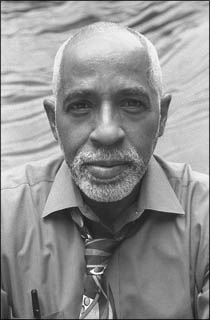 |  | Jazz Hayden Photo: Steve Schapiro |
Today, nearly five million Americans are barred by law from voting at all because of a felony conviction. (A felony is any crime that carries a sentence of a year or more in prison.) The disenfranchisement of criminals is based on an ancient notion of "civil death." People who committed certain crimes were literally banished from the community.
Today the notion is still alive, but the laws vary from state to state. For example, in Maine, a convicted murderer may vote while still in prison, but in Virginia, someone arrested for selling drugs when he was 18 may never vote again. An American suffrage movement-- voting rights for felons -- could make a considerable difference in upcoming elections.
In New York state, there are nearly 70,000 prisoners behind bars, most of whom serve their time in the rural areas north of New York City. Yet overwhelmingly these prisoners come from just seven neighborhoods in the city.
Jazz Hayden grew up in one of those neighborhoods. He's one of 130,000 prisoners or parolees in New York state who can't vote because of a felony conviction.
"You in Harlem now. We on hallowed ground," says Hayden. "It's referred to as the black man's capitol of America. Home to Adam Clayton Powell, Malcolm X..."
As Hayden explains it, just about everyone in Harlem has a brother or a nephew or a cousin who's locked up. In New York, as across the country, there are more blacks imprisoned than whites. Though blacks only make up 15 percent of the state population, they make up more than half the prison population.
Hayden was born poor, but Harlem was good to him. He ended up owning a building on the block where he grew up.
"I had a club here it was called the Taurians Two, it was a major club in Harlem back in the 70s," remembers Hayden.
But somewhere along the line, something went horribly wrong: in the summer of 1987, Hayden was arrested for stabbing and killing a sanitation worker and was sentenced to prison where he spent the next 13 years.
In prison, Hayden had a lot of time to think and read. He got a masters degree in theology. He also filed a lawsuit against the state on behalf of prisoners in New York.
Next: THE ROOTS OF FELON DISENFRANCHISEMENT
| 
